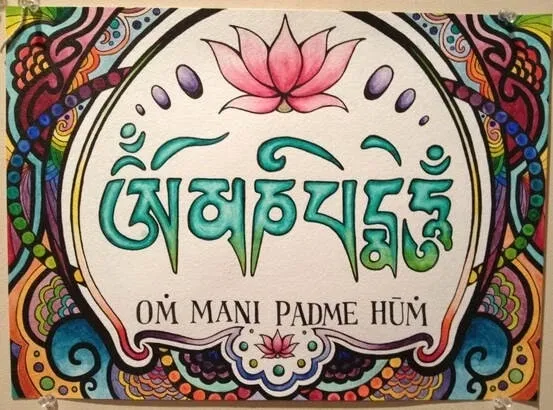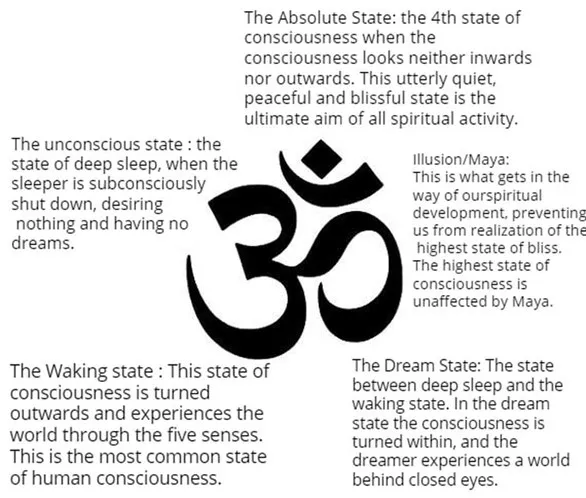
Samatha uses the breath as the object of focus but there is no counting, only noticing and awareness as your mind rests naturally on the breath, bringing it back gently if it wanders. Slight emphasis is placed on noticing the out breath. The eyes are open, gazing down 45° past your nose, the gaze is gently fixed, not staring, blink as necessary.
Cultivating mindfulness is the key to overcoming suffering and recognizing natural wisdom: both our own and in others. Mindfulness meditation in the Buddhist tradition is not intended to change us or make us different; instead, it helps us become aware of what is already true moment by moment, it helps us be present with whatever is happening, no matter what it is.
The way to happiness and to alleviate suffering is by going more deeply into the present moment and into ourselves as we already are, not by trying to change what is going on. We need to understand suffering, take care and nurture ourselves and our feelings, realize that we deserve to be happy, to believe that happiness is attainable, and happiness will be attained.
The sitting practice of mindfulness meditation gives us the opportunity to become more aware of ourselves just as we are. We catch glimpses of our inherent wisdom. We learn not to push away uncomfortable feelings, by sitting with them and giving them space, they dissolve. When you try to push difficult emotions away it perpetuates the unnecessary suffering that results from trying to escape the discomfort, and even pain, we inevitably experience as a consequence of simply being alive. It takes bravery and courage to face the pain and allow it to be transformed.
Buddha taught that the source of suffering is our attempt to escape from our direct experience. First, we cause ourselves suffering by trying to get away from pain and attempting to hang on to pleasure. Unfortunately, instead of quelling our suffering or perpetuating our happiness, this strategy has the opposite effect. Instead of making us happier, it causes us to suffer. Second, we cause suffering when we try to prop up a false identity usually known as ego. This, too, doesn’t work and leads instead to suffering.
Mindfulness, paying precise, nonjudgmental attention to the details of our experience as it arises and subsides, doesn’t reject anything. Instead of struggling to get away from experiences we find difficult, we practice being able to be with them. Equally, we bring mindfulness to pleasant experiences as well. Perhaps surprisingly, many times we have a hard time staying simply present with happiness. We turn it into something more familiar, like worrying that it won’t last or trying to keep it from fading away.
When we are mindful, we show up for our lives; we don’t miss them in being distracted or in wishing for things to be different. Instead, if something needs to be changed we are present enough to understand what needs to be done. Being mindful is not a substitute for actually participating in our lives and taking care of our own and others’ needs. In fact, the more mindful we are, the more skilful we can be in compassionate action.

Om contains all the power in the universe, it is the beginning, the middle and the end; it is the past, the present and the future. Om is the sound the universe was created from. When a practitioner can control all states of consciousness, they have reached enlightenment and a state that allows them to be in a state joy and bliss at any moment.
Loving kindness (guided meditation)
Everyone wants to be happy, but happiness cannot be achieved in isolation. The happiness of one depends upon the happiness of all and the happiness of all depends upon the happiness of one. This is because all life is interdependent. In order to be happy, one needs to cultivate wholesome attitudes towards others in society and towards all sentient beings.
Loving kindness or Maithree meditation is a practice taught by the Buddha to develop the mental habit of selfless or altruistic love. It develops friendliness (metta), Compassion (karuna), Appreciative joy (mudita) and Equanimity (upekkha). By cultivating these wholesome attitudes people can gradually remove ill will, cruelty, jealousy and desire. In this way, they can achieve happiness for themselves and others, now and in the future. When we focus on what we don’t like about ourselves and forget to appreciate our positive qualities, sometimes we stop loving ourselves. As an antidote we will reflect on and acknowledge our positive qualities.
Loving-kindness, the first immeasurable, is the wish that all sentient beings, without any exception, be happy. Loving-kindness counters ill will
Compassion, the second of the immeasurables, is the wish for all sentient beings to be free from suffering. It counters cruelty.
The third immeasurable is appreciative joy. It is the wholesome attitude of rejoicing in the happiness and virtues of all sentient beings. It counters jealousy and makes people less self-centred.
Equanimity, the last of the four immeasurables, is the attitude of regarding all sentient beings as equals, irrespective of their present relationship to oneself. The wholesome attitude of equanimity counters clinging and aversion.
Friendliness is expressed as warmth that reaches out and embraces others that naturally overflows into compassion as you sympathize with other people’s difficulties. It reaches equanimity, which means caring towards everybody with an equal spread of loving feelings and acceptance of all situations and relationships while remaining kindly disposed.
An open loving heart can receive love fully. When we can love ourselves fully we can love others unconditionally; the practice teaches us to respond to the challenges of life with wisdom, while awakening our true nature – the source of the most profound happiness and well-being.
To practice the meditation on loving-kindness, one should begin with oneself. One should cultivate the wish to be happy. Gradually, this practice will enable one to eliminate unwholesome attitudes and actions that produce unhappiness in one’s life. When one has developed a feeling of loving-kindness towards oneself, one should go on to develop it towards a close relative or friend. When this is accomplished, one can move on to the more difficult task of developing loving-kindness towards strangers and even enemies. One then extends this attitude to all members of one’s community and nation and finally to all sentient beings in all the realms of existence.